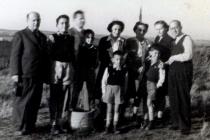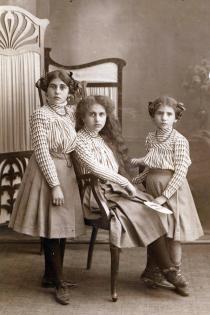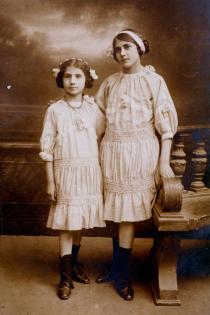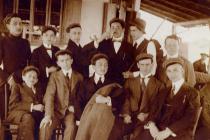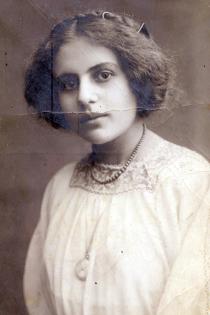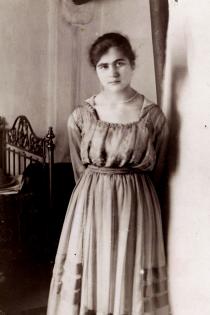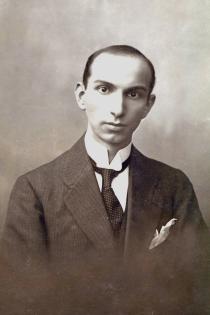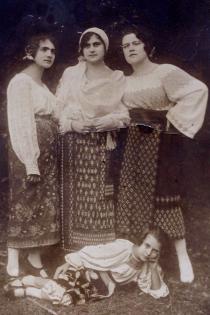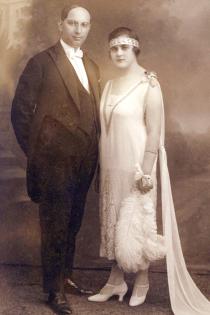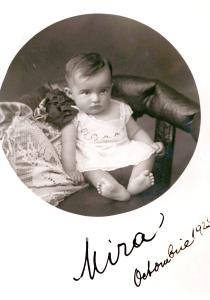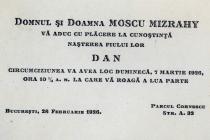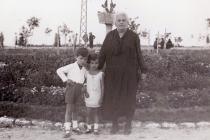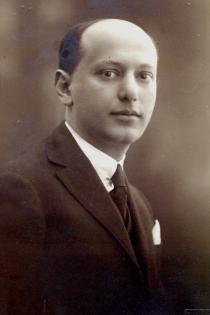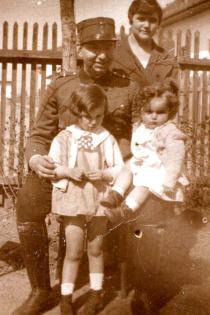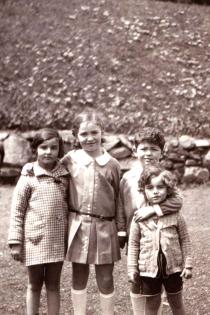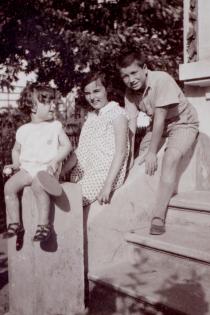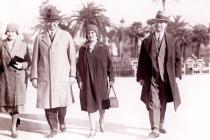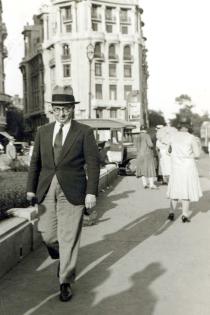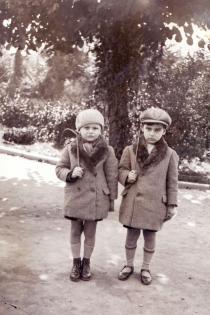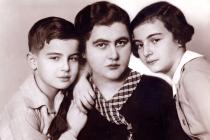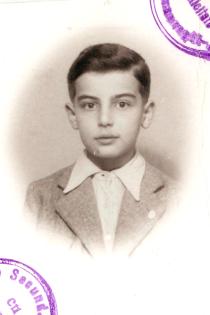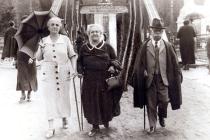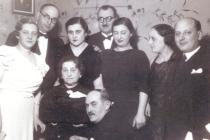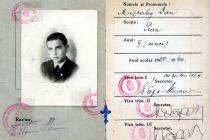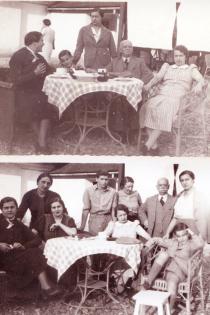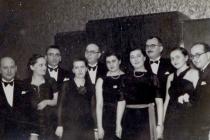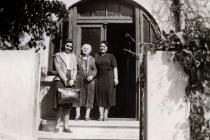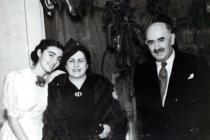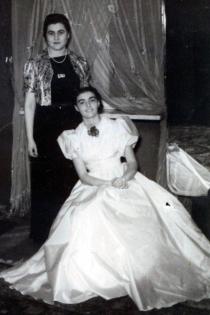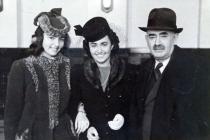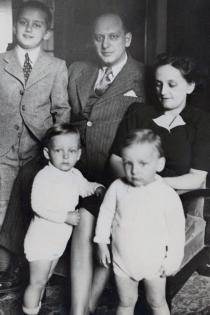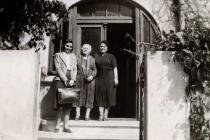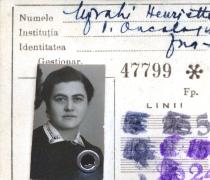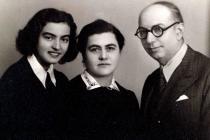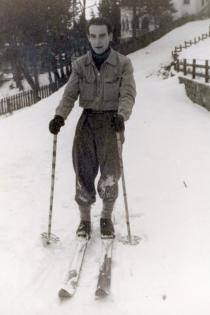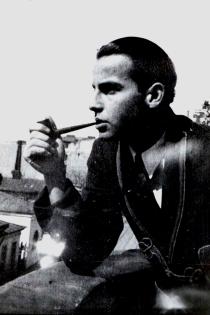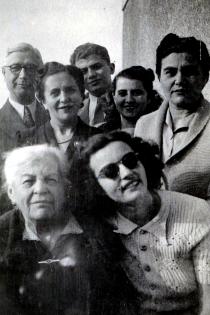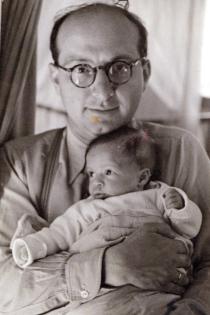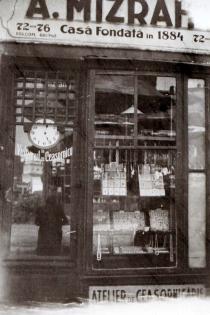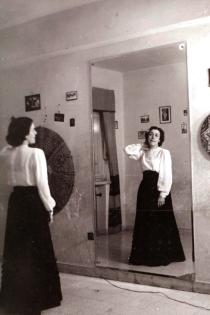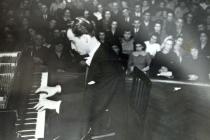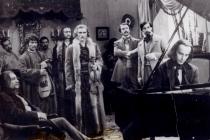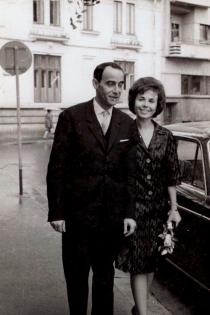The photograph was taken at the end of a concert in Bucharest, in 1958. I, Dan Mizrahy, am in the centre of the photograph, next to the piano. My lifetime friend, conductor Iosif Conta [b. 1924], is leaning against the piano, next to the members of the orchestra.
On 3rd November 1958 my family - my parents, my wife, my sister, my brother-in-law, my niece, and I - filed a request for passports in order to emigrate to Israel. Two weeks later, my wife was sacked from the theater; on 27th November, in the morning, the principal of the intermediate music school called me and informed me - with an embarrassed voice - to prepare my teacher card and hand it to the cleaning woman who was on her way to my place. She was bringing a memo informing me that my contract had been terminated, based on an article that labeled me in such a way that no one would ever hire me again. Some managers limited themselves to a simple notification, like in my case; others called people to their office like in Reli's case; and there were institutions, like the Romanian Opera, where they put on full-scale union and party meetings in which the applicants were 'exposed' as traitors and enemies of the people and were hooted out of the hall - this was the case of the couple Robina, a ballerina, and Sergiu Comissiona, a conductor. Other colleagues told me that the ones who were fired from the Radio hadn't had an easy time either. Our situation was very serious. We became outcasts. Some of our former colleagues, the cautious or fearful ones, avoided being seen in our company, because one 'didn't look good' if seen with the outcasts.
My first wife, actress Aurelia Sorescu, lived her tragedy and humiliation without seeing any chance to get to do something even remotely related to her profession. Various acquaintances of hers - some of them placed in pretty high places - started suggesting her to give up the idea of leaving the country. To file for 'cancellation'. This term was becoming popular - it was the term that could give us the right to live again. Of course, she asked for my opinion. I couldn't say no. I wouldn't have had any arguments. She had reached the limits of her physical and psychological strength. The question was whether I should abandon the emigration plans too - making common cause with her, just like she had done back in fall - or wait and see what would happen to her before I make a decision. We both agreed on the latter. She was moved from place to place, until they found her a position at the 'L. S. Bulandra' Theater, the former Municipal Theater. Encouraged by the results of her 'cancellation', I was naive enough to think that the same thing would happen to me too. But I was wrong. My first dream had been to teach again. The answer was trenchant: 'There's no room for him in education anymore. He can go play in pubs!' I couldn't be a soloist either. With or without that cancellation, my name could no longer be printed on any poster. I had no way out. So I had to start all over again!

